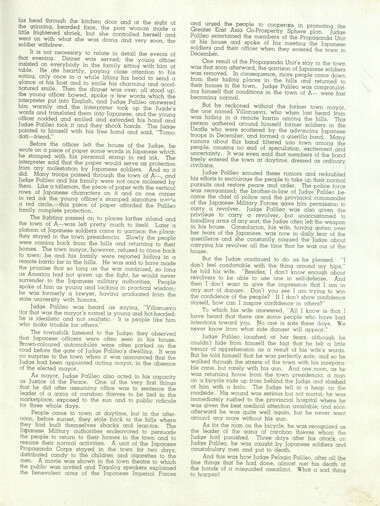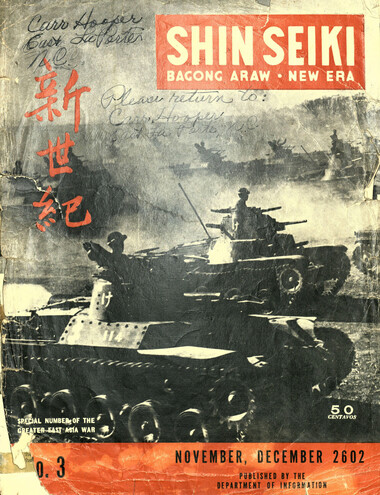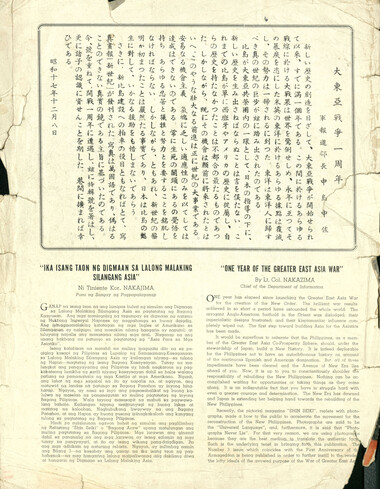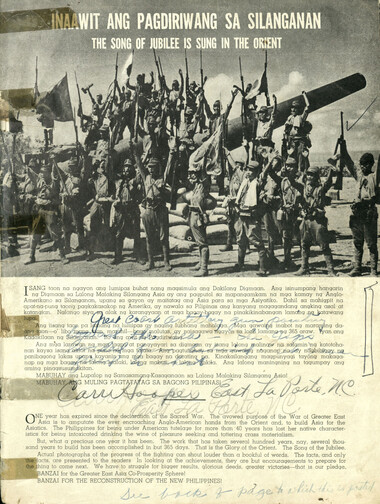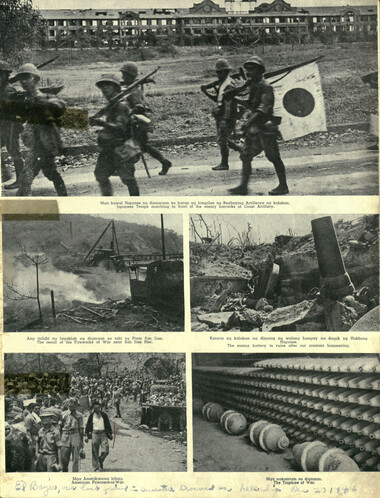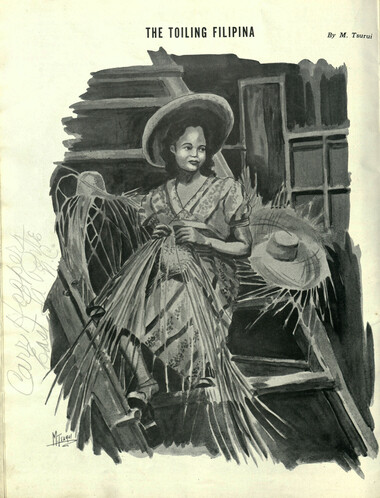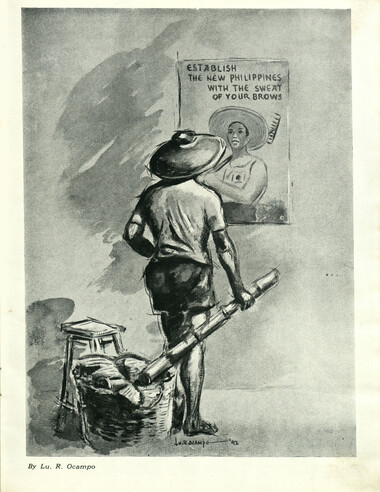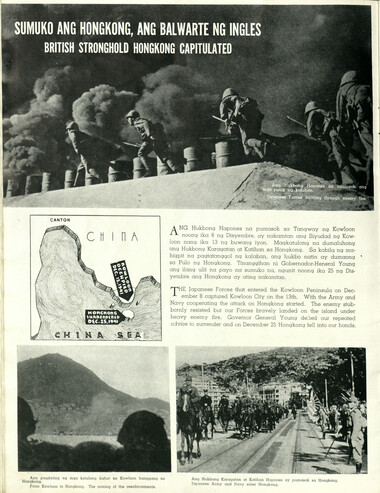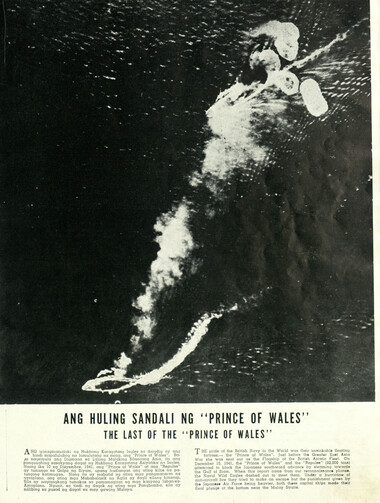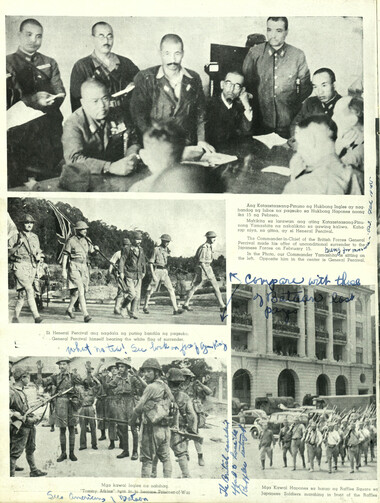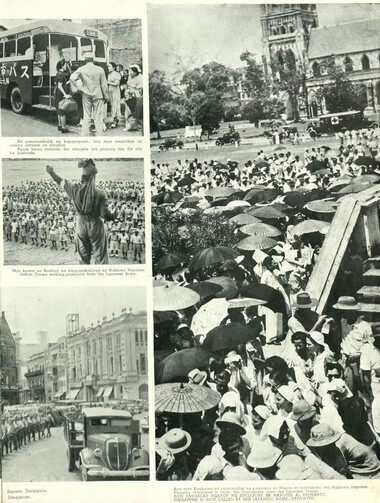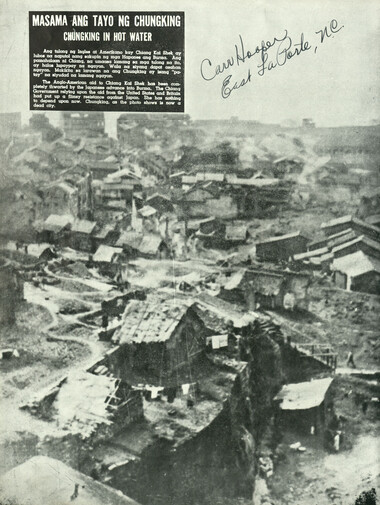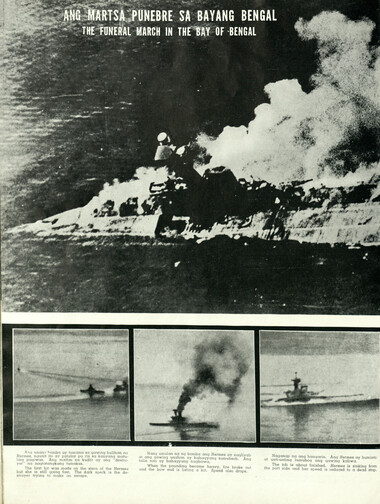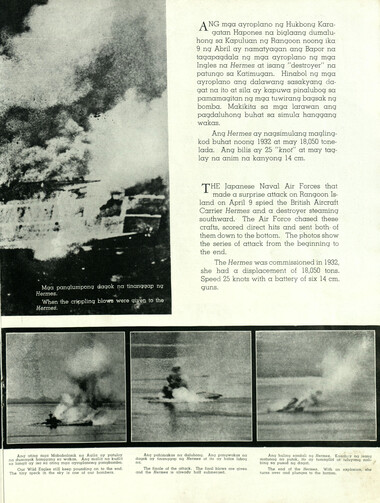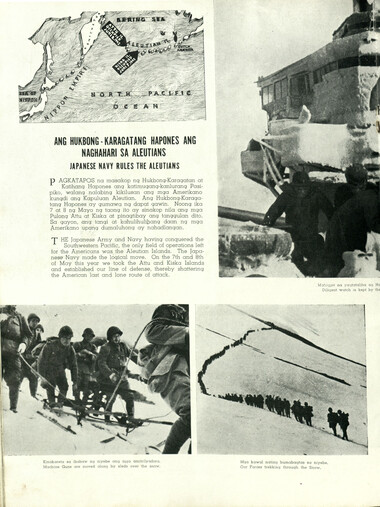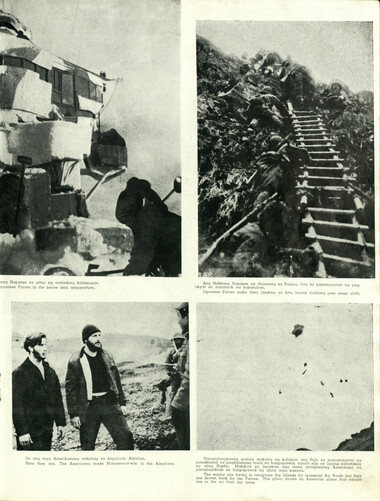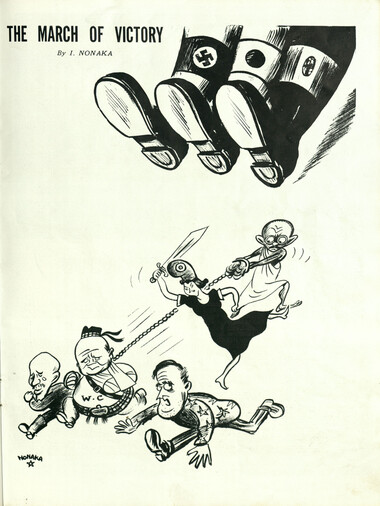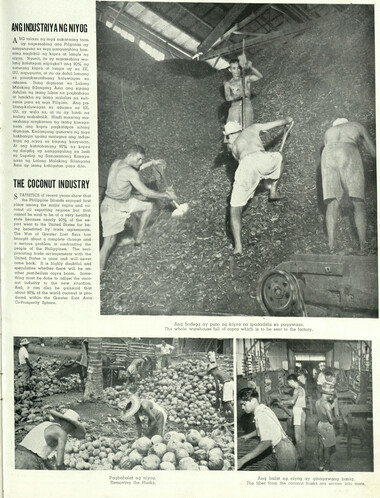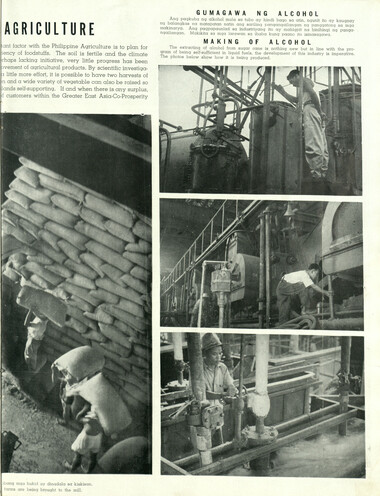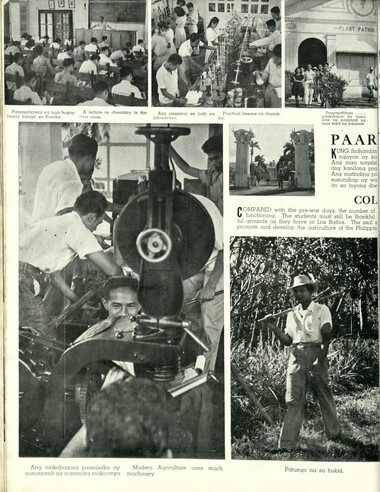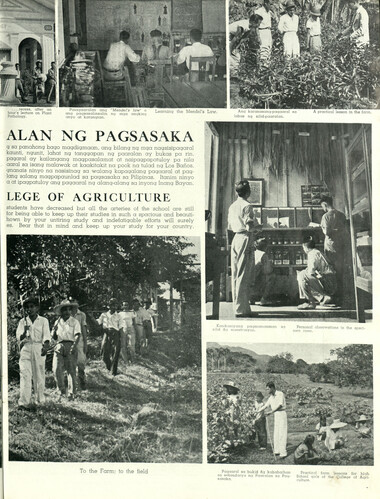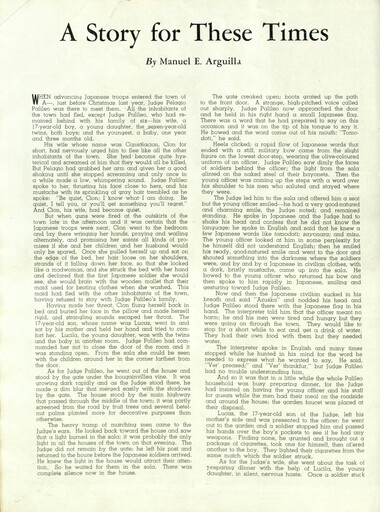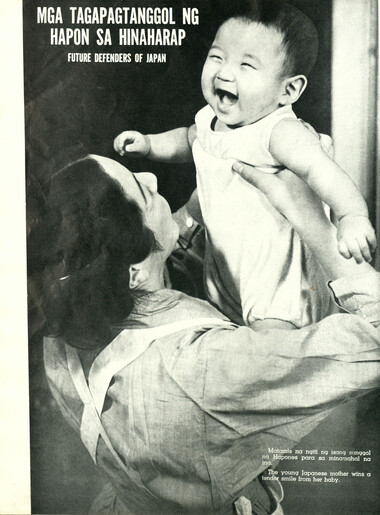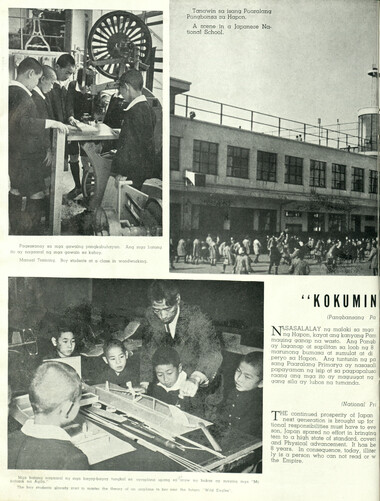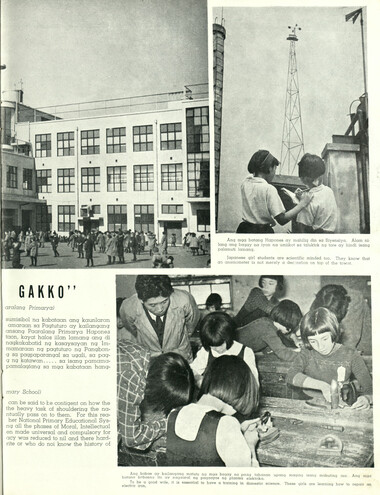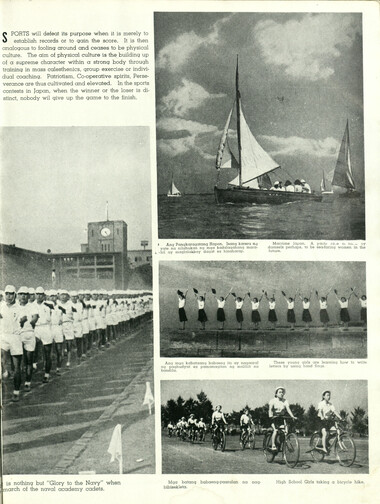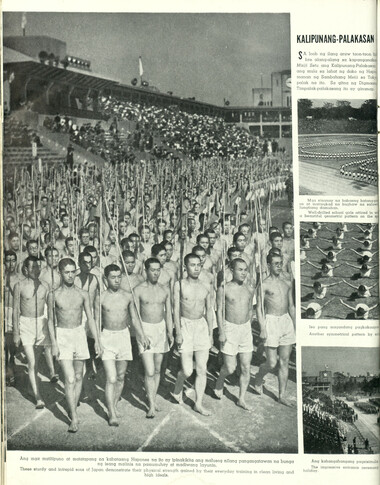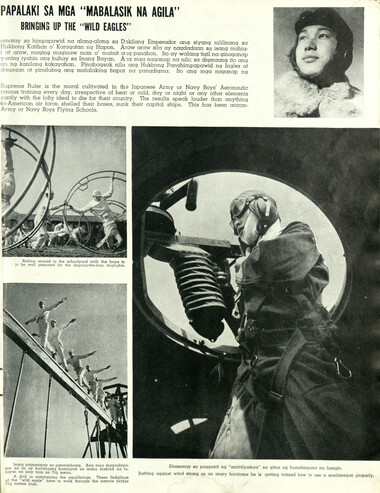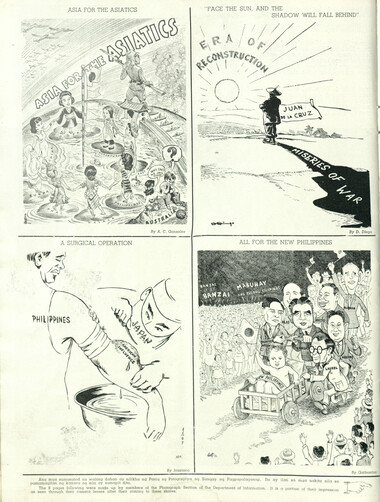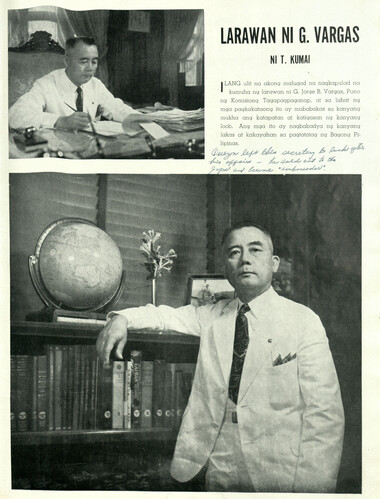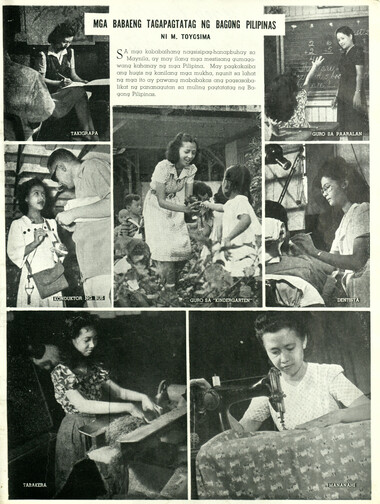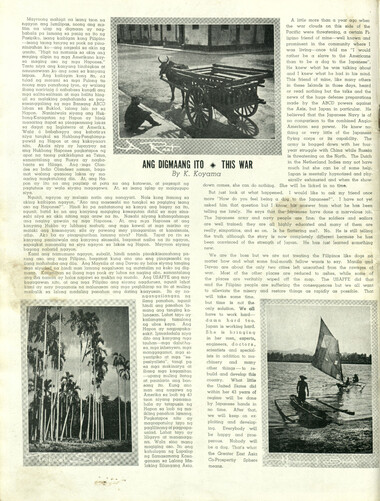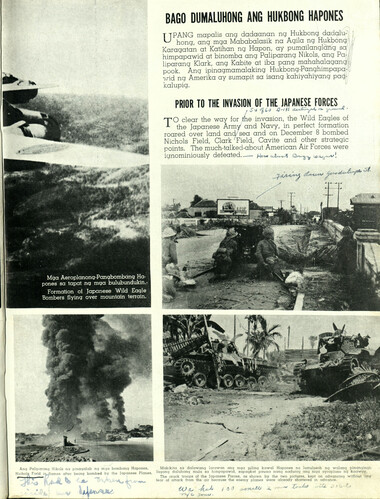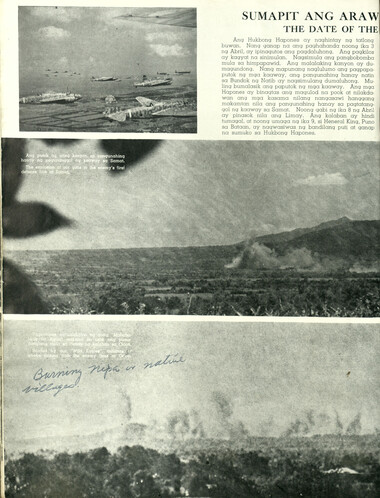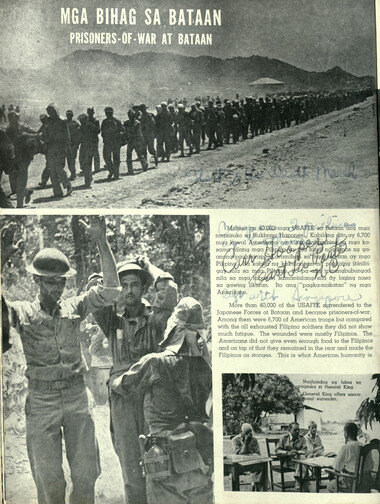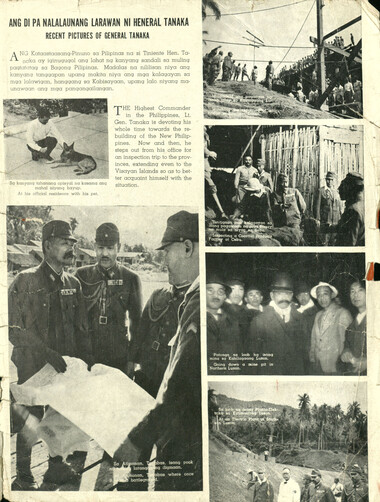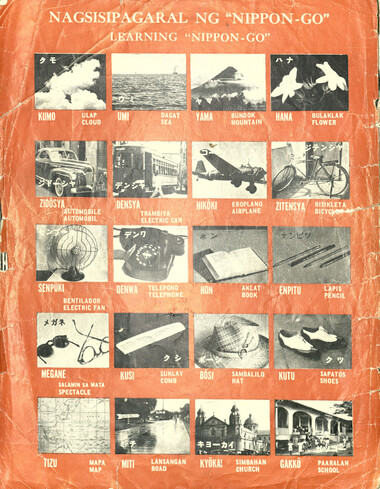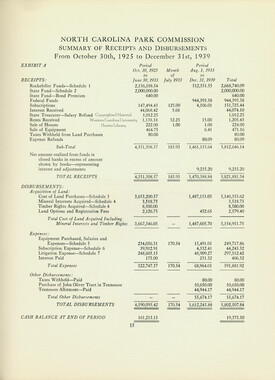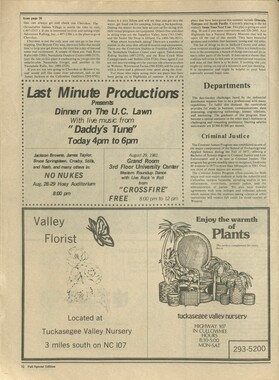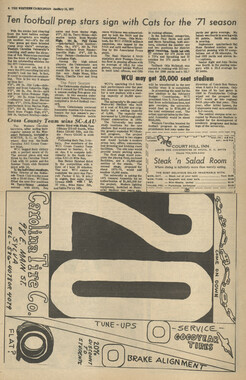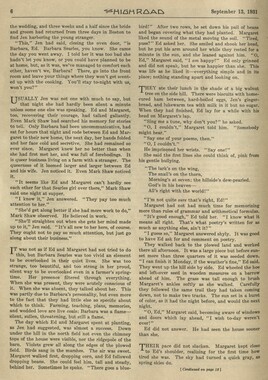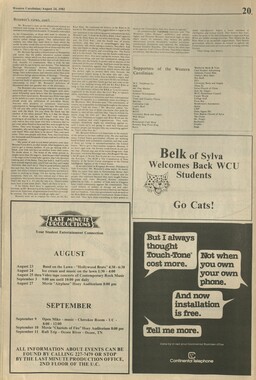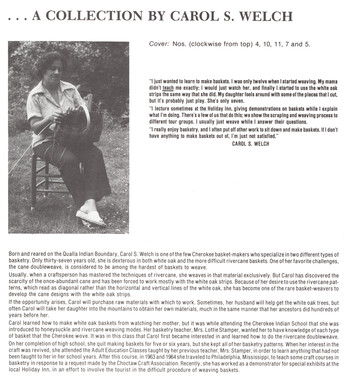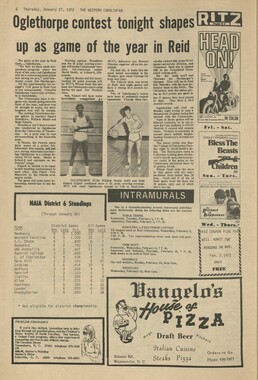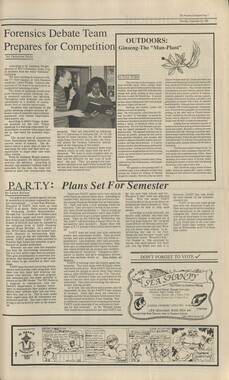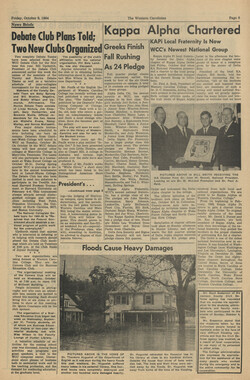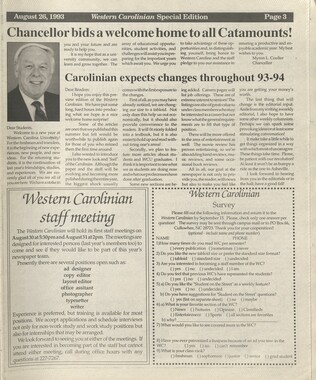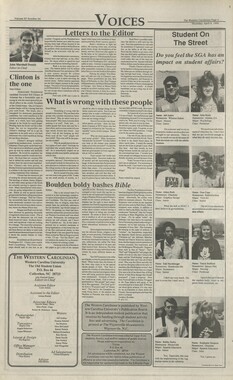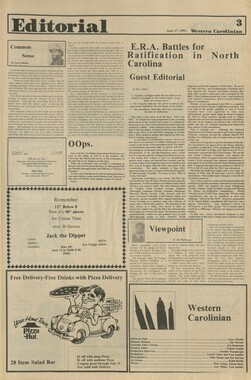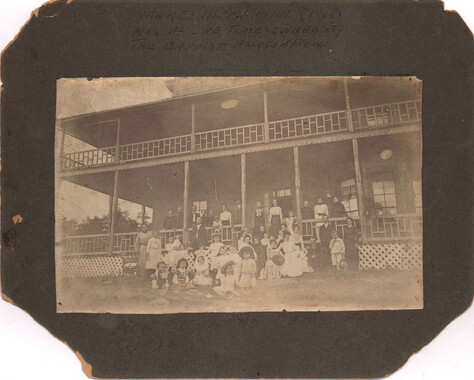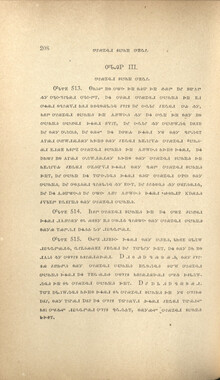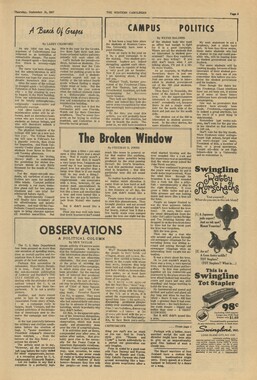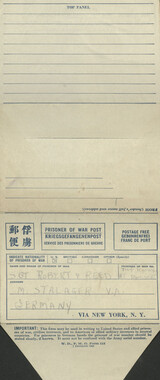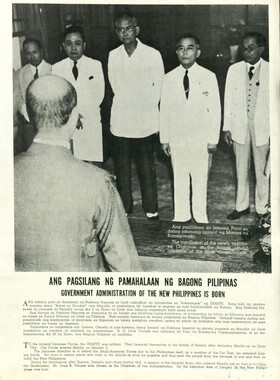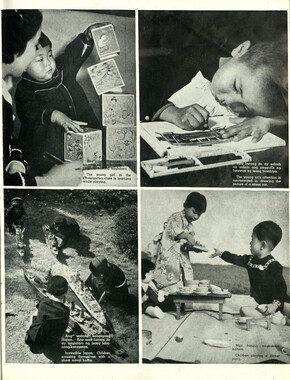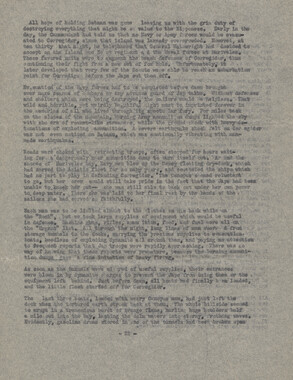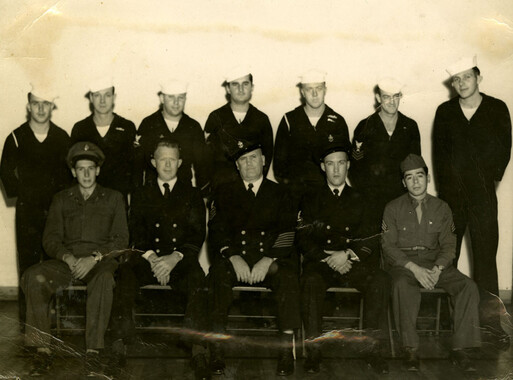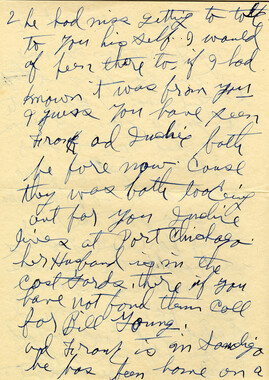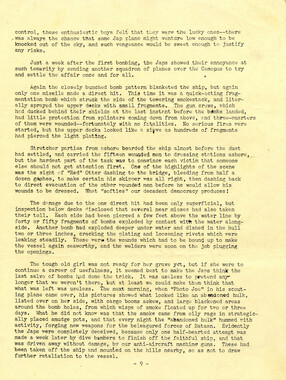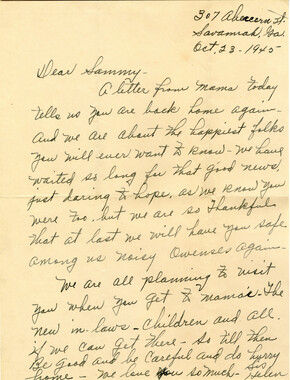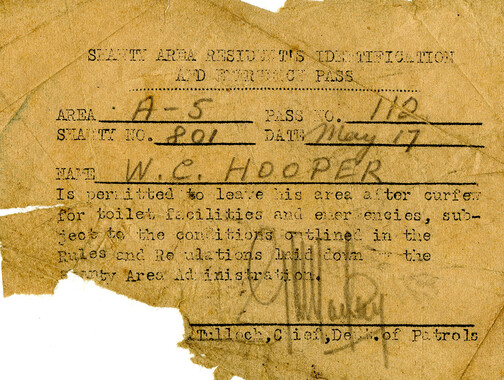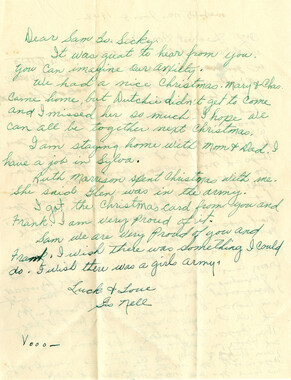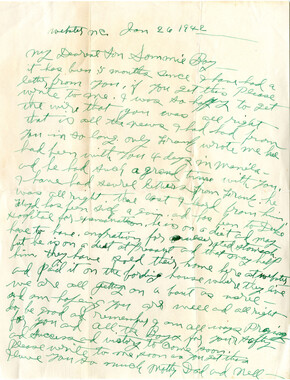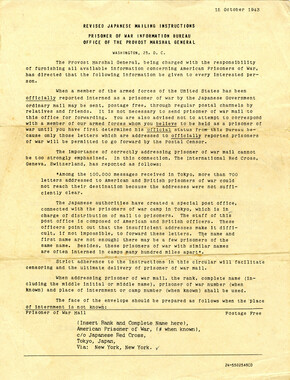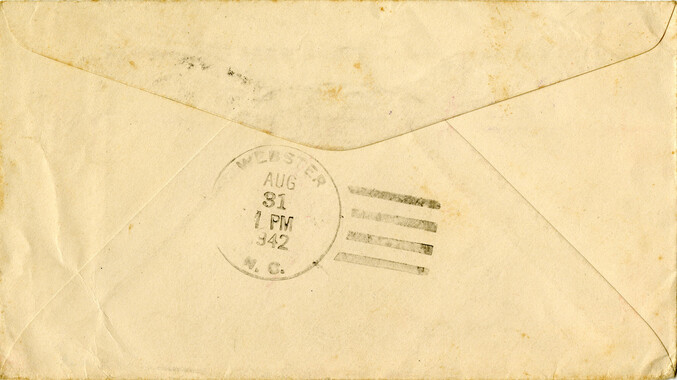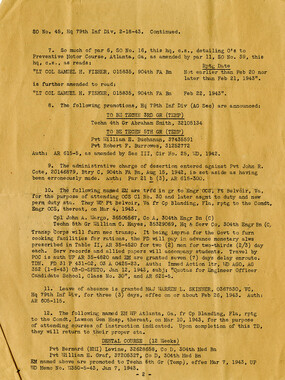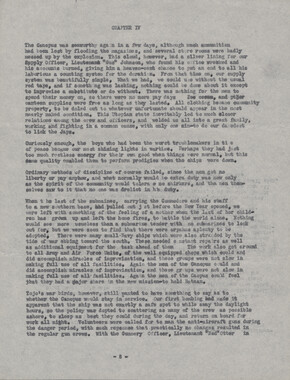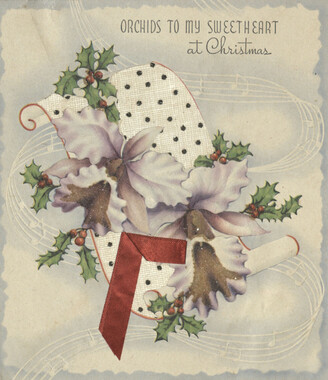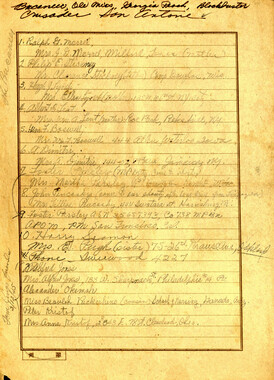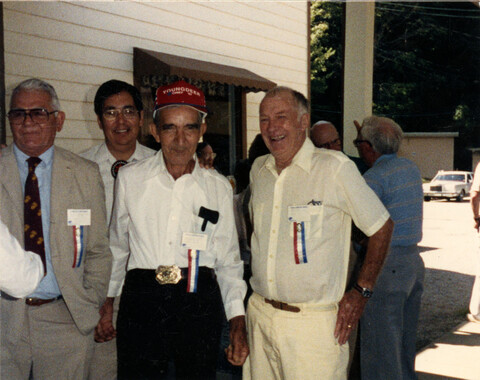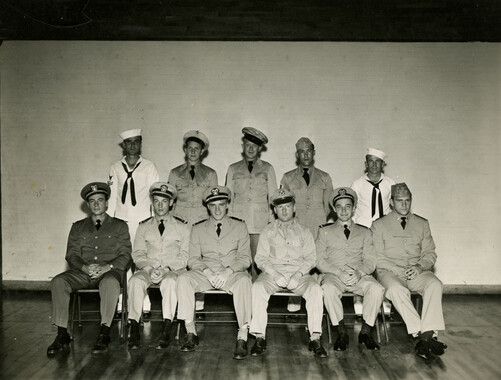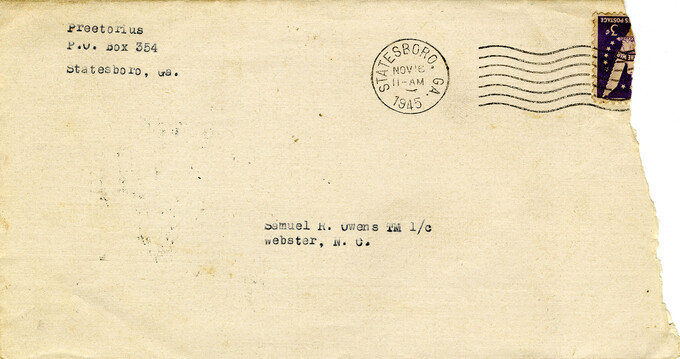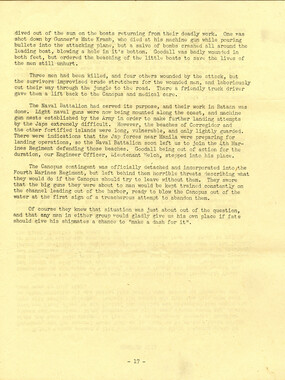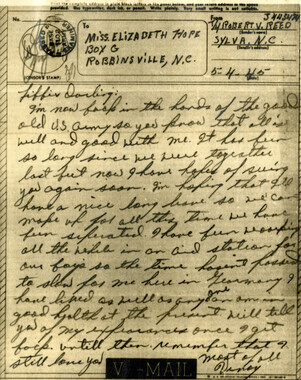Western Carolina University (20)
View all
- Canton Champion Fibre Company (2308)
- Cherokee Traditions (293)
- Civil War in Southern Appalachia (165)
- Craft Revival (1942)
- Great Smoky Mountains - A Park for America (2683)
- Highlights from Western Carolina University (430)
- Horace Kephart (941)
- Journeys Through Jackson (154)
- LGBTQIA+ Archive of Jackson County (7)
- Oral Histories of Western North Carolina (314)
- Picturing Appalachia (6592)
- Stories of Mountain Folk (413)
- Travel Western North Carolina (160)
- Western Carolina University Fine Art Museum Vitreograph Collection (129)
- Western Carolina University Herbarium (92)
- Western Carolina University: Making Memories (708)
- Western Carolina University Publications (2283)
- Western Carolina University Restricted Electronic Theses and Dissertations (146)
- Western North Carolina Regional Maps (71)
- World War II in Southern Appalachia (131)
University of North Carolina Asheville (6)
View all
- Owens, Samuel Robert, 1918-1995 (11)
- Allanstand Cottage Industries (0)
- Appalachian National Park Association (0)
- Bennett, Kelly, 1890-1974 (0)
- Berry, Walter (0)
- Brasstown Carvers (0)
- Cain, Doreyl Ammons (0)
- Carver, George Washington, 1864?-1943 (0)
- Cathey, Joseph, 1803-1874 (0)
- Champion Fibre Company (0)
- Champion Paper and Fibre Company (0)
- Cherokee Indian Fair Association (0)
- Cherokee Language Program (0)
- Crittenden, Lorraine (0)
- Crowe, Amanda (0)
- Edmonston, Thomas Benton, 1842-1907 (0)
- Ensley, A. L. (Abraham Lincoln), 1865-1948 (0)
- Fromer, Irving Rhodes, 1913-1994 (0)
- George Butz (BFS 1907) (0)
- Goodrich, Frances Louisa (0)
- Grant, George Alexander, 1891-1964 (0)
- Heard, Marian Gladys (0)
- Kephart, Calvin, 1883-1969 (0)
- Kephart, Horace, 1862-1931 (0)
- Kephart, Laura, 1862-1954 (0)
- Laney, Gideon Thomas, 1889-1976 (0)
- Masa, George, 1881-1933 (0)
- McElhinney, William Julian, 1896-1953 (0)
- Niggli, Josephina, 1910-1983 (0)
- North Carolina Park Commission (0)
- Osborne, Kezia Stradley (0)
- Penland Weavers and Potters (0)
- Rhodes, Judy (0)
- Roberts, Vivienne (0)
- Roth, Albert, 1890-1974 (0)
- Schenck, Carl Alwin, 1868-1955 (0)
- Sherrill's Photography Studio (0)
- Smith, Edward Clark (0)
- Southern Highland Handicraft Guild (0)
- Southern Highlanders, Inc. (0)
- Stalcup, Jesse Bryson (0)
- Stearns, I. K. (0)
- Thompson, James Edward, 1880-1976 (0)
- United States. Indian Arts and Crafts Board (0)
- USFS (0)
- Vance, Zebulon Baird, 1830-1894 (0)
- Weaver, Zebulon, 1872-1948 (0)
- Western Carolina College (0)
- Western Carolina Teachers College (0)
- Western Carolina University (0)
- Western Carolina University. Mountain Heritage Center (0)
- Whitman, Walt, 1819-1892 (0)
- Wilburn, Hiram Coleman, 1880-1967 (0)
- Williams, Isadora (0)
- 1910s (1)
- 1920s (1)
- 1930s (14)
- 1940s (103)
- 1950s (1)
- 1960s (2)
- 1970s (1)
- 1980s (2)
- 1990s (2)
- 1600s (0)
- 1700s (0)
- 1800s (0)
- 1810s (0)
- 1820s (0)
- 1830s (0)
- 1840s (0)
- 1850s (0)
- 1860s (0)
- 1870s (0)
- 1880s (0)
- 1890s (0)
- 1900s (0)
- 2000s (0)
- 2010s (0)
- 2020s (0)
- Buncombe County (N.C.) (3)
- Graham County (N.C.) (1)
- Jackson County (N.C.) (15)
- Appalachian Region, Southern (0)
- Asheville (N.C.) (0)
- Avery County (N.C.) (0)
- Blount County (Tenn.) (0)
- Cherokee County (N.C.) (0)
- Clay County (N.C.) (0)
- Great Smoky Mountains National Park (N.C. and Tenn.) (0)
- Haywood County (N.C.) (0)
- Henderson County (N.C.) (0)
- Knox County (Tenn.) (0)
- Knoxville (Tenn.) (0)
- Lake Santeetlah (N.C.) (0)
- Macon County (N.C.) (0)
- Madison County (N.C.) (0)
- McDowell County (N.C.) (0)
- Mitchell County (N.C.) (0)
- Polk County (N.C.) (0)
- Qualla Boundary (0)
- Rutherford County (N.C.) (0)
- Swain County (N.C.) (0)
- Transylvania County (N.C.) (0)
- Watauga County (N.C.) (0)
- Waynesville (N.C.) (0)
- Yancey County (N.C.) (0)
- Albums (books) (1)
- Cards (information Artifacts) (12)
- Clippings (information Artifacts) (11)
- Envelopes (6)
- Fliers (printed Matter) (1)
- Letters (correspondence) (70)
- Manuscripts (documents) (9)
- Memorandums (1)
- Newsletters (2)
- Newspapers (2)
- Occupation Currency (1)
- Photographs (19)
- Postcards (1)
- Publications (documents) (2)
- Sheet Music (1)
- Aerial Photographs (0)
- Aerial Views (0)
- Articles (0)
- Artifacts (object Genre) (0)
- Biography (general Genre) (0)
- Crafts (art Genres) (0)
- Depictions (visual Works) (0)
- Design Drawings (0)
- Drawings (visual Works) (0)
- Facsimiles (reproductions) (0)
- Fiction (general Genre) (0)
- Financial Records (0)
- Glass Plate Negatives (0)
- Guidebooks (0)
- Internegatives (0)
- Interviews (0)
- Land Surveys (0)
- Maps (documents) (0)
- Minutes (administrative Records) (0)
- Negatives (photographs) (0)
- Paintings (visual Works) (0)
- Pen And Ink Drawings (0)
- Periodicals (0)
- Personal Narratives (0)
- Poetry (0)
- Portraits (0)
- Programs (documents) (0)
- Questionnaires (0)
- Scrapbooks (0)
- Slides (photographs) (0)
- Sound Recordings (0)
- Specimens (0)
- Speeches (documents) (0)
- Text Messages (0)
- Tintypes (photographs) (0)
- Transcripts (0)
- Video Recordings (physical Artifacts) (0)
- Vitreographs (0)
- Samuel Robert Owens Collection (94)
- Venoy and Elizabeth Reed Collection (16)
- A.L. Ensley Collection (0)
- Appalachian Industrial School Records (0)
- Appalachian National Park Association Records (0)
- Axley-Meroney Collection (0)
- Bayard Wootten Photograph Collection (0)
- Bethel Rural Community Organization Collection (0)
- Blumer Collection (0)
- C.W. Slagle Collection (0)
- Canton Area Historical Museum (0)
- Carlos C. Campbell Collection (0)
- Cataloochee History Project (0)
- Cherokee Studies Collection (0)
- Daisy Dame Photograph Album (0)
- Daniel Boone VI Collection (0)
- Doris Ulmann Photograph Collection (0)
- Elizabeth H. Lasley Collection (0)
- Elizabeth Woolworth Szold Fleharty Collection (0)
- Frank Fry Collection (0)
- George Masa Collection (0)
- Gideon Laney Collection (0)
- Hazel Scarborough Collection (0)
- Hiram C. Wilburn Papers (0)
- Historic Photographs Collection (0)
- Horace Kephart Collection (0)
- Humbard Collection (0)
- Hunter and Weaver Families Collection (0)
- I. D. Blumenthal Collection (0)
- Isadora Williams Collection (0)
- Jesse Bryson Stalcup Collection (0)
- Jim Thompson Collection (0)
- John B. Battle Collection (0)
- John C. Campbell Folk School Records (0)
- John Parris Collection (0)
- Judaculla Rock project (0)
- Kelly Bennett Collection (0)
- Love Family Papers (0)
- Major Wiley Parris Civil War Letters (0)
- Map Collection (0)
- McFee-Misemer Civil War Letters (0)
- Mountain Heritage Center Collection (0)
- Norburn - Robertson - Thomson Families Collection (0)
- Pauline Hood Collection (0)
- Pre-Guild Collection (0)
- Qualla Arts and Crafts Mutual Collection (0)
- R.A. Romanes Collection (0)
- Rosser H. Taylor Collection (0)
- Sara Madison Collection (0)
- Sherrill Studio Photo Collection (0)
- Smoky Mountains Hiking Club Collection (0)
- Stories of Mountain Folk - Radio Programs (0)
- The Reporter, Western Carolina University (0)
- WCU Gender and Sexuality Oral History Project (0)
- WCU Mountain Heritage Center Oral Histories (0)
- WCU Oral History Collection - Mountain People, Mountain Lives (0)
- WCU Students Newspapers Collection (0)
- Western North Carolina Tomorrow Black Oral History Project (0)
- William Williams Stringfield Collection (0)
- Zebulon Weaver Collection (0)
- Dance (1)
- World War, 1939-1945 (103)
- African Americans (0)
- Appalachian Trail (0)
- Artisans (0)
- Cherokee art (0)
- Cherokee artists -- North Carolina (0)
- Cherokee language (0)
- Cherokee pottery (0)
- Cherokee women (0)
- Church buildings (0)
- Civilian Conservation Corps (U.S.) (0)
- College student newspapers and periodicals (0)
- Dams (0)
- Education (0)
- Floods (0)
- Folk music (0)
- Forced removal, 1813-1903 (0)
- Forest conservation (0)
- Forests and forestry (0)
- Gender nonconformity (0)
- Great Smoky Mountains National Park (N.C. and Tenn.) (0)
- Hunting (0)
- Landscape photography (0)
- Logging (0)
- Maps (0)
- Mines and mineral resources (0)
- North Carolina -- Maps (0)
- Paper industry (0)
- Postcards (0)
- Pottery (0)
- Railroad trains (0)
- Rural electrification -- North Carolina, Western (0)
- School integration -- Southern States (0)
- Segregation -- North Carolina, Western (0)
- Slavery (0)
- Sports (0)
- Storytelling (0)
- Waterfalls -- Great Smoky Mountains (N.C. and Tenn.) (0)
- Weaving -- Appalachian Region, Southern (0)
- Wood-carving -- Appalachian Region, Southern (0)
- StillImage (20)
- Text (111)
- MovingImage (0)
- Sound (0)
Shin Seiki: Bagong Araw. New Era
Item
Item’s are ‘child’ level descriptions to ‘parent’ objects, (e.g. one page of a whole book).
-
-
his head through the kitchen door and at the sight of the grinning, bearded face, the poor woman made a little frightened shriek, but she controlled herself and went on with what she was doing and very soon, the soldier withdrew. It is not necessary to relate in detail the events of that evening. Dinner was served; the young officer insisted on everybody in the family sitting with him at table. He ate heartily, paying close attention to his eating, only once in a while lifting his head to send a glance at his host and to smile his charming and good- natured smile. Then the dinner was over; all stood up, the young officer bowed, spoke a few words which the interpreter put into English, and Judge Palileo answered him warmly and the interpreter took up the Jugde's words and translated them into Japanese, and the young officer nodded and smiled and extended his hand and Judge Palileo took it and they shook hands. The Juage pointed to himself with his free hand and said, "Tomo- dati—friend." Before the officer left the house of the Judge, he wrote on a piece of paper some words in Japanese which he stamped with his personal stamp in red ink. The interpreter said that the paper would serve as protection from any molestation by Japanese soldiers. And so it did. Many troops passed through the town of A—, and Judge Palileo and his family were not once molested by them. Like a talisman, the piece of paper with the vertical rows of Japanese characters on it and on one corner in red ink the young officer's stamped signature ins''Je a red circle,—this piece of paper afforded the Palileo family complete protection. The fighting passed on to places farther inland and the town of A—was left pretty much to itself. Later a platoon of Japanese soldiers came to garrison the place; they stayed in the town presidencia. Slowly the people were coming back from the hills and returning to their homes. The town mayor, however, refused to come back to town; he and his family were reported hiding in a remote barrio far in the hills. He was said to have made the promise that so long as the war continued, so long as America had not given up the fight, he would never surrender to the Japanese military authorities. People spoke of him as young and lacking in practical wisdom; he was formerly a lawyer, having graduated from the state university with honors. Judge Palileo was heard as saying, "Villanueva (for that was the mayor's name) is young and hot-headed; he is idealistic and not realistic. It is people like him who make trouble for others." The townsfolk listened to the Judge; they observed that Japanese officers were often seen in his house. Brown-coloured automobiles were often parked on the road before the gate of Judge Palileo's dwelling. It was no surprise to the town when it was announced that the Judge had been appointed acting mayor, in the absence of the elected mayor. As mayor, Judge Palileo also acted in his capacity as Justice of the Peace. One of the very first things that he did after assuming office was to sentence the leader of a gang of carabao thieves to be tied in the marketplace, exposed to the sun and to public ridicule for three whole days. People came to town at daytime, but in the afternoon, before sunset, they stole back to the hills where they had built themselves shacks and lean-tos. The Japanese Military authorities endeavored to persuade the people to return to their homes in the town and to resume their normal activities. A unit of the Japanese Propaganda Corps stayed in the town for two days, distributed candy to the children and cigarettes to the men. A movie was shown in the town theatre to which the public was invited and Tagalog speakers explained the benevolent aims of the Japanese Imperial Forces and urged the people to cooperate in promoting the Greater East Asia Co-Prospertiy Sphere plan. Judge Palileo entertained the members of the Propaganda Unit at his house and spoke of his meeting the Japanese soldiers and their officer when they entered the town in December. One result of the Propaganda Unit's stay in the town was that soon afterward, the garrison of Japanese soldiers was removed. In consequence, more people came down from their hiding places in the hills and returned to their homes in the town. Judge Palileo was congratulating himself that conditions in the town of A— were fast becoming normal. But he reckoned without the former town mayor, the one named Villanueva, who when last heard from was hiding in a remote barrio among the hills. This person gathered around himself former soldiers in the Usaffe who were scattered by the advancing Japanese troops in December, and formed a guerilla band. Many rumors about this band filtered into town among the people, causing no end of speculation, excitement and uncertainty. It was even said that members of the band freely entered the town at daytime, dressed as ordinary civilians. i ' i Judge Palileo scouted these rumors and redoubled his efforts to encourage the people to take up their normal pursuits and restore peace and order. The police force was reorganized; the brother-in-law of Judge Palileo' became the chief of police and the provincial commander of the Japanese Military Forces gave him permission to carry a revolver. Judge Palileo was also given the privilege to carry a revolver, but unaccustomed to handling arms of any sort, the Judge often left the weapon in his house. Consolacion, his wife, having gotten over her fears of the Japanese, was now in daily fear of the guerilleros and she constantly nagged the Judge about carrying his revolver all the time that he was out of the house. But the Judge continued to do as he pleased. "I don't feel comfortable with the thing around my hips," he told his wife. "Besides, I don't know enough about revolvers to be able to use one in self-defense. And then I don't want to give the impression that I am in any sort of danger. Don't you see I am trying to win the confidence of the people? If I don't show confidence myself, how can I inspire confidence in others?" To which his wife answered, "All I know is that I have heard that there are some people who have bad intentions toward you. No one is safe these days. We never know from what side danger will appear." Judge Palileo laughed at her fears, although he couldn't hide from himself the fact that he felt a little tremor of apprehension as a result of his wife's words. But he told himself that he was perfectly safe; and so he walked through the streets of the town with his inseparable cane, but rarely with his gun. And one noon, as he was returning home from the town presidencia, a man on a bicycle rode up from behind the Judge and slashed at him with a bolo. The Judge fell in a heap on the roadside. His wound was serious but not mortal; he was immediately rushed to the provincial hospital where he was given the best medical attention available, and soon afterward he was quite well again, but he never went around any more without his gun. As for the man on the bicycle, he was recognized as the leader of the gang of carabao thieves whom the Judge had punished. Three days after his attack on Judge Palileo, he was caught by Japanese soldiers and constabulary men and put to death. And this was how Judge Pelagio Palileo, after all the fine things that he had done, almost met his death at the hands of a misguided assailant. What a sad thing to happen!
Object
Object’s are ‘parent’ level descriptions to ‘children’ items, (e.g. a book with pages).
-
This edition of Japanese propaganda magazine, “Shin Seiki” (text in Tagalog and English), published by the Department of Information, was brought back to America by Carr and Ruth Hooper who were interned at Santo Tomas Internment Camp in Manila, Philippines from January 1942 to February 1945. Hand-written notes made by Carr refer to several photos and captions. The camp, also known as the Manila Internment Camp, was run by the Japanese military during World War II and housed over 3,000 internees from January 1942 until February 1945.
-
